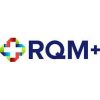As discussed in my previous column, one of the first things a medical device company should do before entering or expanding their business in an Asian market is determine the demand for their specific product through extensive on-the-ground research in that specific country. Obviously, there is no reason to register a device if the market research reveals little or no demand or growth opportunities for your product.
Many device companies will include key opinion leader (KOL) identification, support and feedback as part of their primary research. This is an excellent approach. However, here is the problem: While it may be relatively easy to identify the best KOLs in Western countries, this process tends to be much tougher and more complicated in Asia, especially when the KOLs’ first language is not English. Foreign device companies looking to find the best KOLs in Japan, China or other Asian countries must conduct extensive interviews and significant due diligence before enlisting an Asian KOL. In general, it is best to do such interviews face-to-face, not via email surveys or cold calls.
For example, several years ago a Western medical device executive called me to discuss getting into the Japan market. The first thing I asked him was what research he had already conducted. He replied that his company had met with many Japanese KOLs, and they all said that his company’s product was terrific. When I probed deeper, I learned that his company obtained this positive feedback via Japanese doctors they had met at conferences in the United States and Europe. This means that they were not in Japan when they were approached and asked to provide their opinions of the product.
While in most countries this KOL feedback would be fairly bankable, it should not be construed as a good way to find the right KOLs to support your device in the Asian markets, especially in countries like Japan and China. A more reliable way to obtain genuine KOL feedback often entails taking your device to Japan so Japanese KOLs can see exactly how the product works as well as its real benefits in person. Let’s discuss several flaws in the way that this Western device company approached the Japanese KOLs.
First of all, as many people know, Japanese people are typically very polite and will almost never insult a foreigner trying to do their job. Thus, when the device companies asked the Japanese KOLs what they thought of their products, they all seemed to say good things—but is that how they really feel? Normally, Japanese people will only confide in other Japanese people, and that is why it is crucial that you have a local Japanese executive or consultant on the ground to obtain the right KOL feedback though fairly lengthy in-person discussions.
Second, we have found that some Japanese KOLs can be double agents. In other words, the Japanese KOL may agree to support the Western device in Japan and for $40,000 a year, he will “talk up” the advantages of your products to key Japanese doctors, the Pharmaceuticals and Medical Devices Agency (PMDA), and other relevant figures. He may be willing to do this work immediately, even before the product registration starts in Japan. Well this sounds fine and dandy; however, it is almost impossible for a foreign device executive to know what the Japanese KOL is really saying to others. Even worse, the Japanese KOL may know a competing Japanese manufacturer who is interested in making a product that is similar to yours and will pay your Japanese KOL $200,000 to learn as much about your foreign device as possible. In our experience, there is very little chance that a foreign medical device company will ever learn this is happening, and in the meantime, the Japanese KOL is working for two parties, collecting fees from both sides, and laughing all the way to the bank.
Similar problems can arise in the markets across Asia, complicating the process of signing up effective and trustworthy KOLs in Asian countries. Due to these factors, it is a very good idea to employ local staff or consultants with on-the-ground presence in your target Asian country to conduct in-depth, face-to-face interviews in the KOLs’ native language. Again, please do not sign up KOLs, especially in non-English speaking Asian countries where it is tough to determine their true outlook on your product, without doing as much due diligence as you did before you married your spouse!






